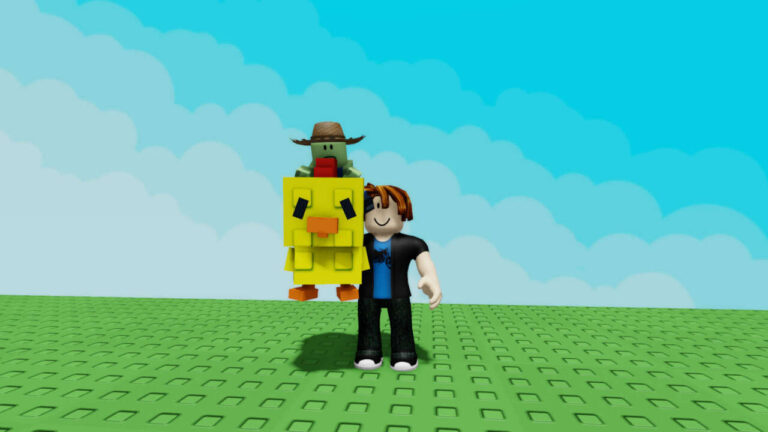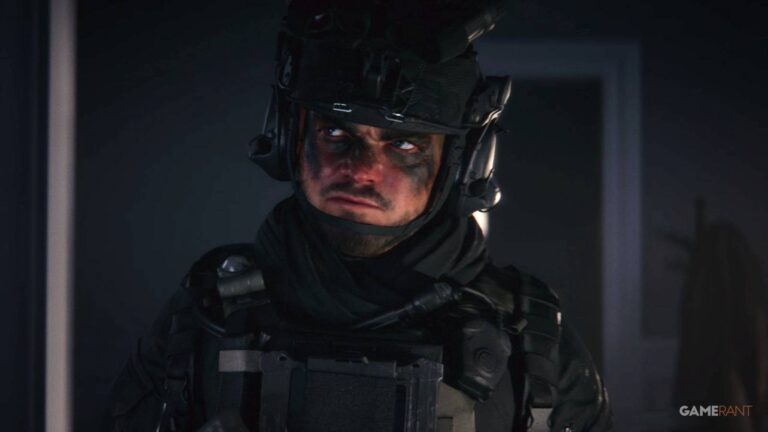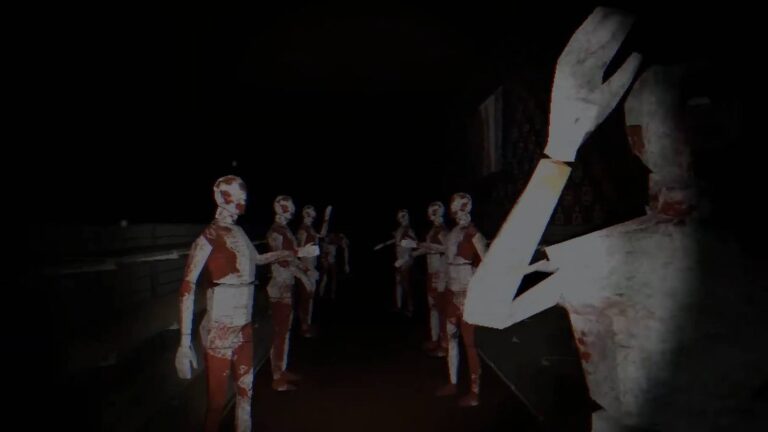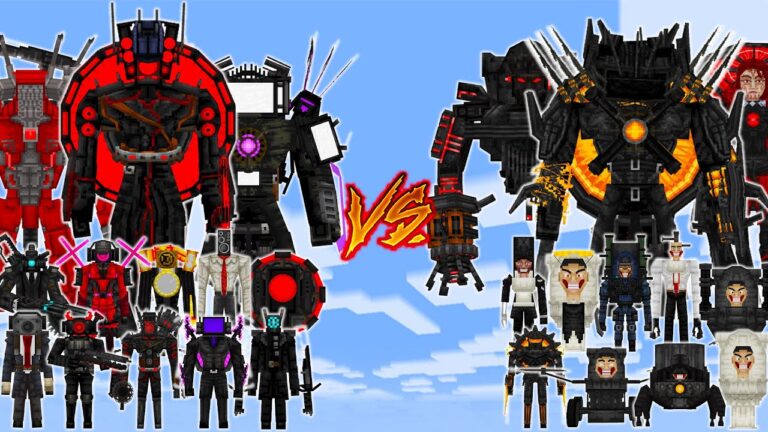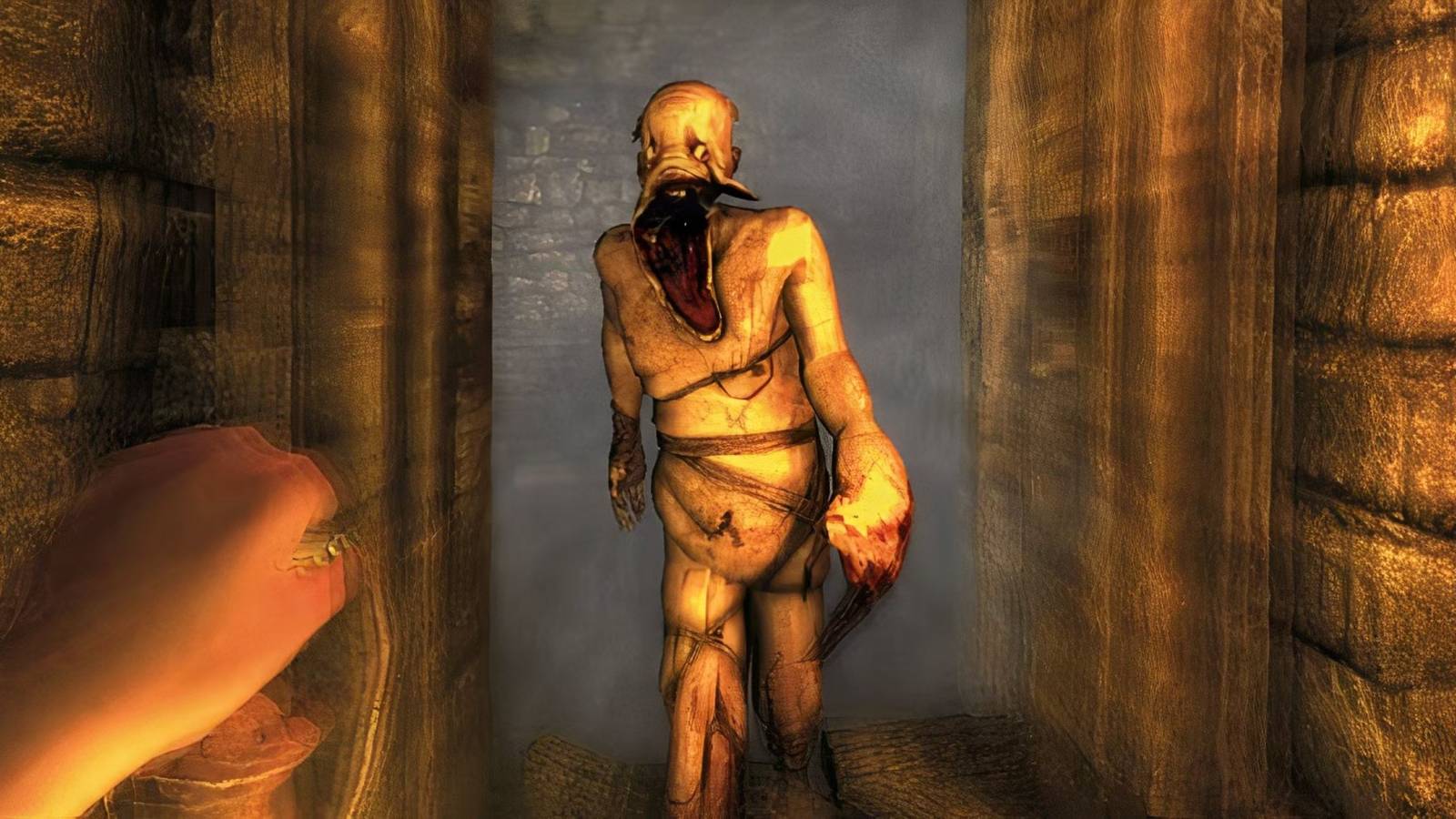
Horror games can shock you, disturb you, and make you jump out of your skin. But the rarest, most special breed of horror is the kind that doesn’t just startle you; it seeps into your brain and fundamentally rewires it, making you distrust everything.
These are the games that leave you glancing over your own shoulder in a well-lit room, lowering the volume on your TV “just in case,” and second-guessing what’s actually real. From collapsing sanity meters to hallways that seem to breathe, these games thrive not on cheap jump scares, but on pure, delicious paranoia. So, here are the seven best horror games that make you feel like you’re being stalked, even when there’s nothing there at all.
Eternal Darkness: Sanity’s Requiem
Sanity Is a Very Slippery Thing
Eternal Darkness did something few games before it, and honestly, few games since, have ever dared to do: it messed with the player directly. Its groundbreaking “Sanity Meter” wasn’t just a health bar for your character’s mind; it was a weapon turned against the audience. The game would fake volume changes on your TV, pretend to delete your save file, and flash sudden, terrifying images of bloodied ceilings on screen, leaving you genuinely questioning whether your console had just broken or if you were losing your mind.
And beyond those brilliant fourth-wall-breaking tricks, it wove this incredible story that spanned centuries of human history, following different characters as they were drawn into the grasp of ancient, eldritch gods. It didn’t just scare you in the game; it made you paranoid about your own reality. A masterpiece.
Amnesia: The Dark Descent
The Dark Is Never, Ever Empty
You are Daniel. You are an ordinary man, and you have amnesia. You’re armed with nothing more than a lantern and a rapidly deteriorating mind, and you are trapped in a castle that feels… alive. Alive with whispers and shifting shadows and things you can’t quite see. And you have no way to fight back. Hiding in a dusty cupboard or crouching behind a stack of barrels, you quickly learn that your best weapon is silence and your only real defence is to not be seen.
The sanity system only amplifies this paranoia to an almost unbearable degree. Stay in the dark for too long, and Daniel starts to lose his grip. But look directly at the monsters? Same effect. Even the simple decision of whether to light a precious torch or conserve your oil feels like a life-or-death choice. It makes you paranoid not just about the enemies, but about your own dwindling resources.
Alien: Isolation
Alone With a Perfect Predator
This game proved a simple, terrifying truth: one monster, done right, is infinitely scarier than an entire army of them. And the xenomorph in Alien: Isolation was done so, so right. It wasn’t scripted. It wasn’t designed to pop out at you in specific places. No. It hunted you. Freely. It was guided by an AI that felt uncannily, horrifyingly intelligent, creating a constant, simmering paranoia that it could be anywhere, at any time, even when you had no logical reason to believe it was.
Amanda Ripley’s fight for survival aboard the Sevastopol Station felt so suffocating because the alien would learn from your mistakes. It would adapt. Use your flamethrower too often? It grows bolder. Hide in the same locker too many times? It will eventually sniff you out. Even the simple act of saving your game carried this unbearable tension, as the alien could strike while you were helplessly locked in an animation.
Condemned: Criminal Origins
Seeing Monsters in the Shadows
Condemned took players on a journey into the grimy, disgusting underbelly of a city filled with deranged vagrants and unspeakable violence. But unlike most supernatural horror, this one thrived on brutal, terrifying realism. Combat wasn’t about guns and ammo; it was about lead pipes, two-by-fours, and whatever else you could rip from the environment, making every single encounter feel like a desperate, clumsy fight for your life.
But what really cranked up the paranoia was the sense that you were never, ever truly alone. Enemies weren’t always predictable. Sometimes they would just lurk in the shadows, just to vanish again when you turned to look. By the time hallucinations and other supernatural elements started to creep into the narrative, the paranoia had already firmly set in.
Darkwood
The Woods Are Watching
From its top-down perspective, Darkwood looks almost… quaint. Don’t be fooled. Within minutes, it proves itself to be one of the most unnerving horror experiences ever crafted. Its world feels hostile in every single detail, from the grotesque, twitching creatures that roam the forests to the NPCs whose motives are always deeply, deeply suspect. And then night falls. Night is the real terror here, forcing you to barricade yourself inside your tiny shack and pray that whatever is scratching and knocking on the door stays outside until the sun comes up.
Paranoia grows through scarcity and sound design. The creak of a floorboard, a shifting shadow, a distant scream, these things are often more terrifying than actual combat. It’s a game that doesn’t hold your hand, which only makes the paranoia bloom that much stronger in the suffocating darkness.
Silent Hill 2
Guilt Wrapped in a Thick Fog
People often remember Silent Hill 2 as one of the greatest horror stories ever told. And it is. But it is also an absolute masterclass in paranoia. James Sunderland’s descent into the fog-shrouded town isn’t just about the grotesque monsters like Pyramid Head; it’s about the slow, creeping suspicion that this entire nightmare is of his own making, a physical manifestation of his own guilt.
The fog and darkness weren’t just technical tricks to hide the PS2’s limitations. No, they were genius design choices. They created an environment where you could never be sure what lurked just a few feet beyond your vision. And when you couple that with the unsettling sound design, like the static from your radio that would scream when there was seemingly no enemy in sight, it kept you perpetually on edge. The real genius was how this paranoia tied directly into the game’s deep, tragic themes.
Observer: System Redux
Reality Is Not to Be Trusted
Observer drops you into a grimy cyberpunk dystopia where technology and human consciousness have become frighteningly, messily intertwined. You’re a detective, an “Observer,” and you solve crimes by hacking into the minds of the dead and dying. But those mindscapes aren’t neat little recordings of events. They are fragmented, glitching nightmares where absolutely nothing can be trusted. One moment you are in a hallway; the next you are falling through an endless, corrupted void.
Its paranoia comes from sheer, deliberate disorientation. The game is constantly shifting environments and perspectives, leaving you completely unsure what is memory, what is dream, and what is a computer virus. Even your own reliance on tech implants becomes a source of unease, as they can malfunction and distort the world in unpredictable ways. It makes you paranoid not only of what you see, but of the very act of perception itself.
